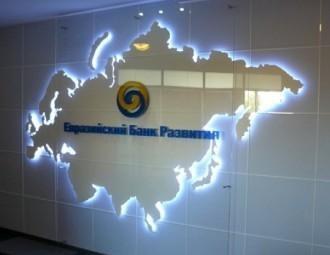EDB experts say Belarus demonstrated visible weakening of the economic dynamics in 2012

The Eurasian Development Bank (EDB), an international financial institution founded by Russia and Kazakhstan, called on the Belarusan government to take more efforts to slow down enormous inflation.
In the press release posted on the EDB website, the bank, which administers a $3-billion loan granted by the Anti-crisis Fund of the Eurasian Economic Community to Belarus, says that last year’s policy by the National Bank of Belarus contributed to the country’s high inflation rate, and cautions Belarus against stimulating economic growth through an increase in lending.
According to the bank’s analysts, economic data states that a significant external imbalance persists. This threatens the country’s general economic stability amid limited gold and foreign exchange reserves. Describing the country’s economic situation as “neither excessively unfavourable nor unmanageable,” the statement concludes that a realistic policy by the government and the National Bank would allow the economy to restore stability and achieve moderate but sustainable economic growth within a year or two.
The analysts of the Research Department of EDB made a conclusion that a common trend in the economic development in the CIS region in 2012 was a reduction in investment demand and a slowdown in export orientated sectors. The growth in almost all CIS economies was driven by consumer demand and the sectors servicing it.
The countries’ GDP was affected by a drastic fall in the growth of prices of oil, which remains a key export item of the CIS economies. Consequently, the aggregate GDP of the CIS countries grew by approximately 3.4% in real terms in 2012, which is significantly lower than the 4.7% in 2011. Economies such as Russia, Kazakhstan, Belarus and Ukraine demonstrated a noticeable weakening of the economic dynamics.
The experts also note that the economic growth in Belarus remained low in 2012, standing at 1.5% at the year end. A drastic slowdown was demonstrated in the sectors working for domestic demand, in particular the investment one. Construction volumes decreased by 9.8%. At the same time, the processing sector, agriculture, transport and communications, which are to a significant extent orientated towards exports, have been growing at high rates. «A key task for Belarusan authorities today is to restore the stability of the country’s balance of payments», consider EDB experts. «The country has limited international reserves and this threatens its overall economic stability».
The analysts warn that the Belarusan government should not expect a significant and sustainable increase in activity in spheres such as trade and construction within at least the next one or two years, but suggest that export-oriented industries can report considerable growth.
Reference:
Eurasian Development Bank is an international financial institution founded by Russia and Kazakhstan in January 2006 with the mission to facilitate the development of market economies, sustainable economic growth and the expansion of mutual trade and other economic ties in its member states. EDB’s charter capital exceeds US $1.5 billion. The member states of the Bank are the Republic of Armenia, the Republic of Belarus, the Republic of Kazakhstan, the Kyrgyz Republic, the Russian Federation, and the Republic of Tajikistan.
-
03.01
-
07.10
-
22.09
-
17.08
-
12.08
-
30.09










































